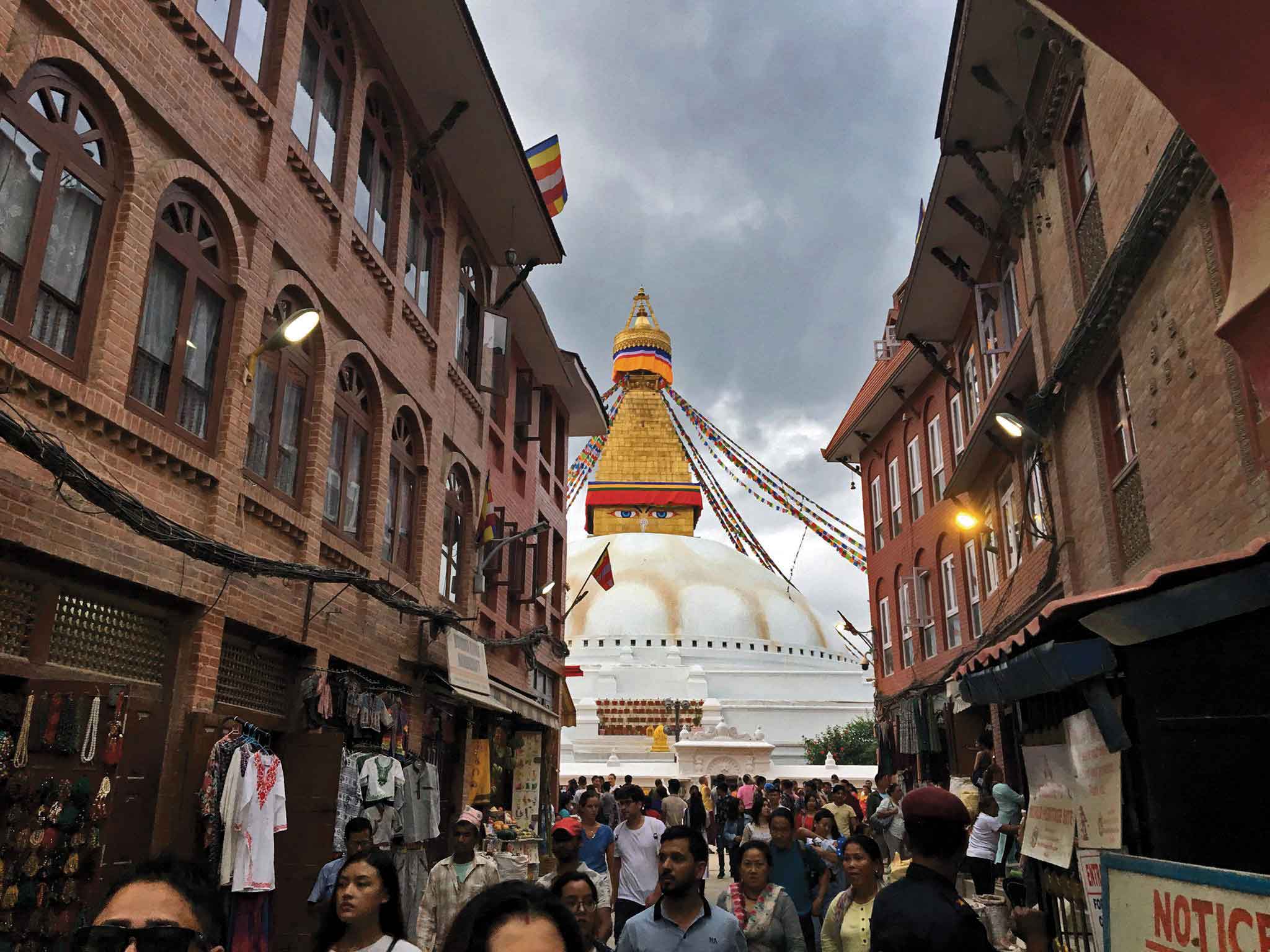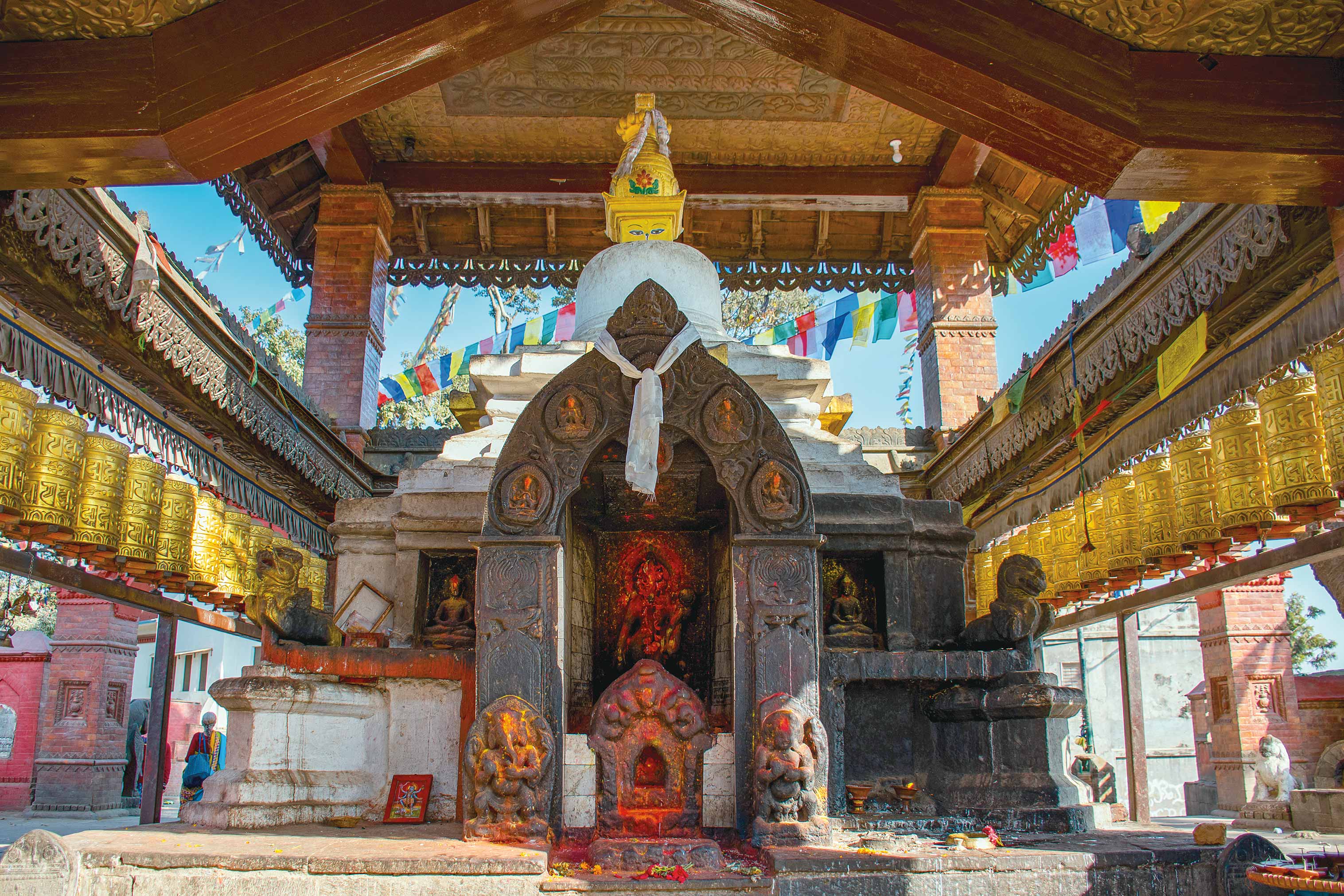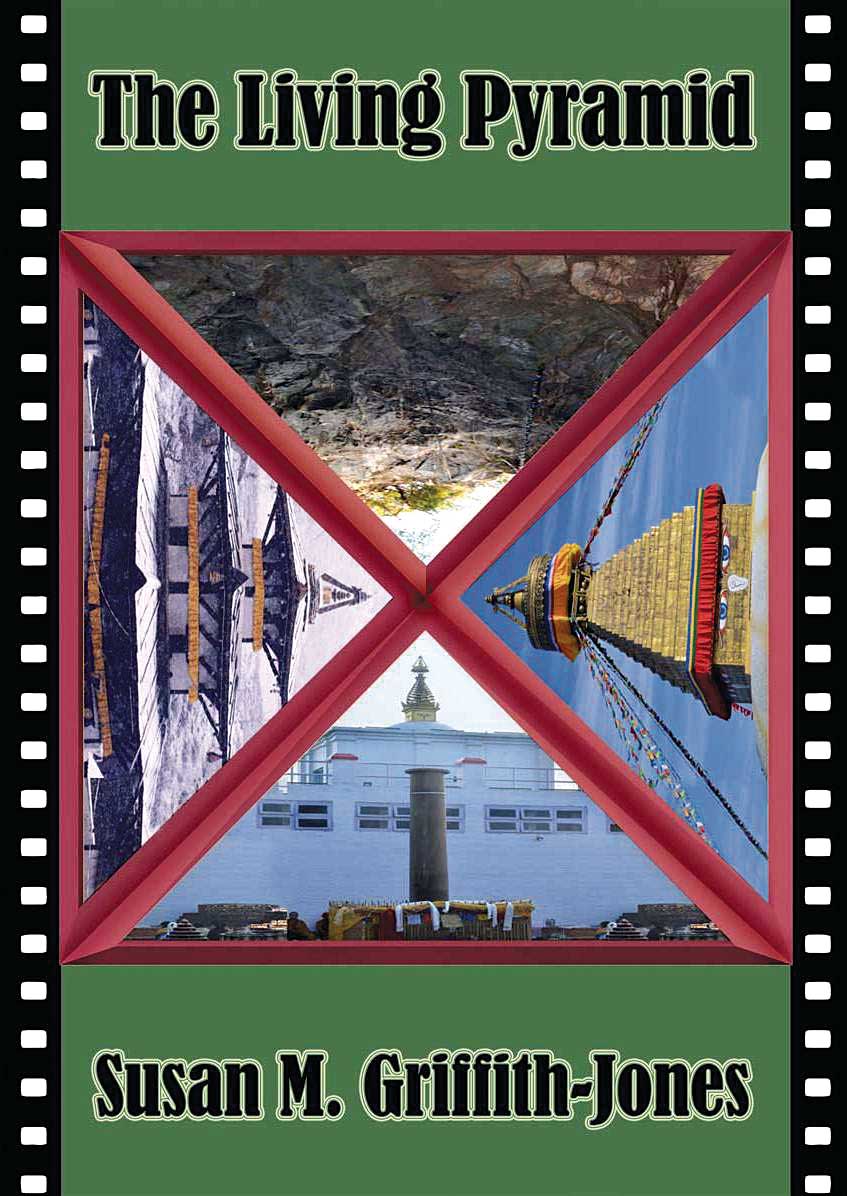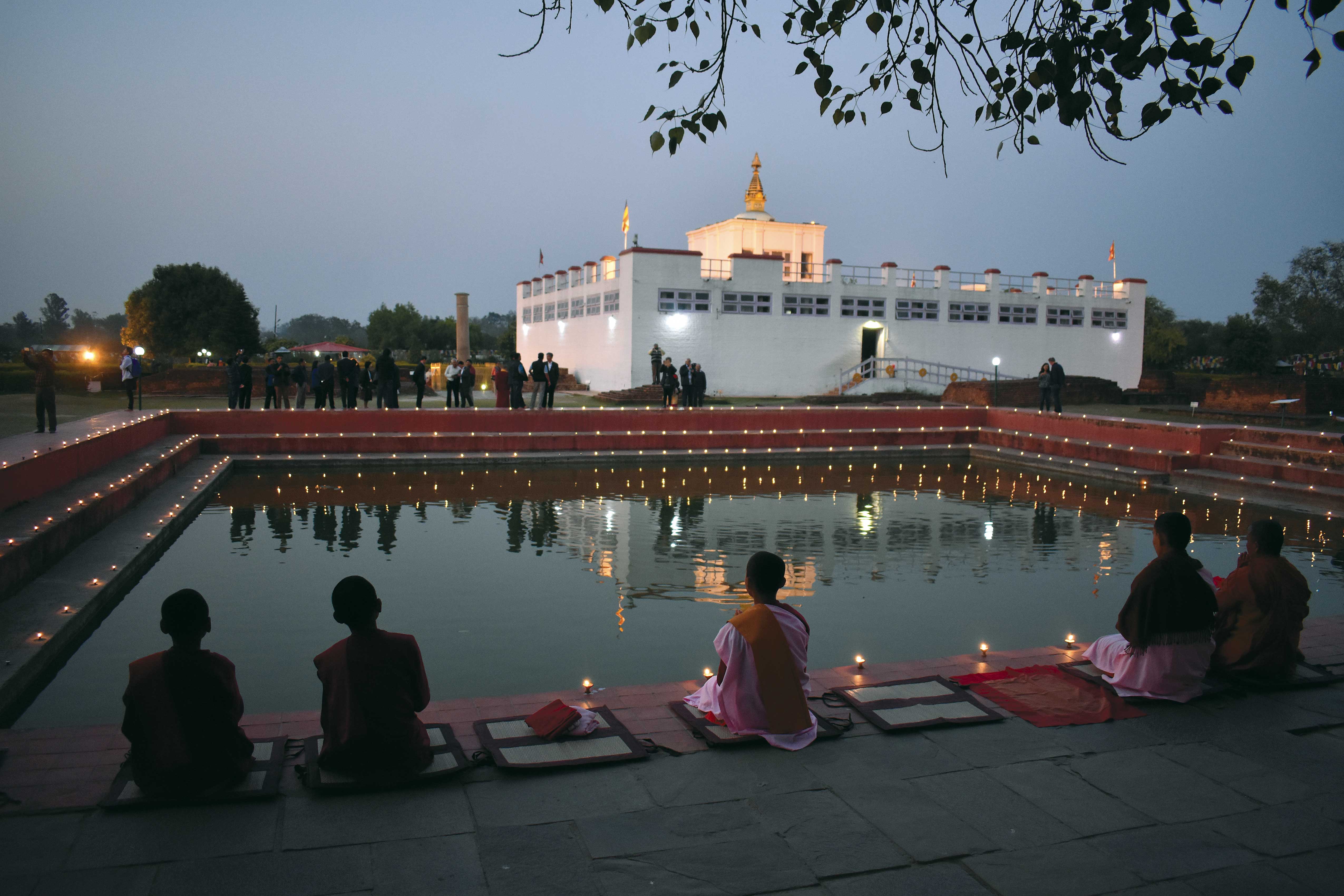The 'Trust Fall' and Other Activities for Team Building
Morning fog was lifting off the ground.Twenty-six names had been written o tags.
A few minutes of waiting did not test anyone’s patience—after all we were close to a vast forest and about to embark on an interesting experience. At the Le Meriden Kathmandu, Gokarna Forest Golf Resort and Spa, a childlike spirit was rekindled in us as we moved around holding branches and stepping on twigs creating a crack in the air. The second Professional Development Program for the staff of WFP (the UN’s World Food Program) was beginning. The participants were arriving, after breakfast and a small briefing on the day’s itinerary.
Organizations range in size, type and operations and other factors with designated posts ranging from the head to the bottom level staff working under a set of strictly followed norms and structures. Work is divided among them for fulfillment of certain goals. Development programs for schools, corporate houses and organizations are highly popular in the West, mainly in the USA and Europe. It is also a slowly emerging concept in Asia.The Borderlands team headed by Megh Ale and promoter Anil Chitrakar has been guiding companies, schools and development organizations in professional development, leadership and other higher skill-adapting programs for the past seven years. Cigdem Penn, a graduate of London School of Economics, organized the team-building activities for the World Food Program.
The Borderlands program usually consists of adventure actions like rock climbing, trekking, canyoning, white water rafting, river crossing, wilderness camping and treks. Theoretical sessions and workshops are kept to a minimum. The program spans from three to five days, at Gokarna Resort (a few miles east of Kathmandu) or at Borderlands Resort (3 hours drive north). Since time was limited, the WFP program was designed for only a half day at Gokarna.
In the Borderlands Professional Development Programs participants are placed into a unique physical environment, in contrast to their home and work environments. A different social environment encourages raising consciousness, both of individuals and groups. The participants are given problem solving tasks and physical challenges that test their mental, physical and emotional resources. During the program period, the clients undergo stress and anxiety; with motivation, however, they manage to deal with the obstacles. And with this a new kind of alertness comes to their minds as awareness and confidence increases all around. Some of the clients the Borderlands team has hosted include Lincoln School, Malpi School, Youth Initiative, Nabil Bank, Standard Chartered Bank, Phillips, Radisson Hotel and the Chaudary Group of Industries.
At the WFP Borderlands program, 26 employees of the agency gathered in a circle, their names stuck on their chests acting as an introductory Ice Breaker, and though none were total strangers to each other, there was still some getting-to-know-you behavior around the group. “An Ice Breaker is essential when placed in a new environment or among new people,” says Anil Chitrakar. The UN World Food Program representative in Nepal, Richard Ragan, noted that since most of his staff worked in the field, they may not know each other very well. The whole setting was very friendly, as my photographer and I, and the Borderlands staff members, were introduced by name.
The Ice Breaker was working. Next, each participant was asked to write down non-negotiable values on eggs, then told that it was our individual responsibility to protect the eggs in whatever manner we wished, throughout the program. With the values nestled in our pockets, crushable, we were launched into a discussion of circumstances that occur in the workplace, with all the differences noted between us.
Good communication skills between people are vital in all work activities. To get this message across, we were formed into three lines, blindfolded, then guided by the first person in the row (who was allowed to see). The distance was short, but curvy and with steps up and down. At the end of that exercvise, we formed a large circle, holding hands. Each person had to squeeze the hand slightly of the one next to him and this way the message (hand-squeezing) went full circle back to the start. The first time round, the hand-squeezing exercise took 26 seconds, but after realizing where the time lag was created and correcting it, we were eventually able to complete this exercise in 5 seconds.
Three groups were then formed in a random order, with Megh Ale, Anil Chitrakar and Borderland staff members leading them. They have almost hundred games on their list, but due to the time constraint only a few could be played during this program. The three groups were presented with various situations in which participants had to use their minds, hands and feet in entirely new and different ways simultaneously. After the completion of each activity, the group members were given time to talk about their experience, where they lagged, and where they could make improvements. I moved from one group and activity to another, noting that other group members always recognized the person who put in a lot of effort. Away from the constraints of formal organizational structure, bonding and team spirit was forming among the participants.
The ‘trust fall’ was the highlight of the adventure games. Trusting someone with a small task or secret isn’t as easy as falling back from the fourth step of a ladder to a web of hands waiting to catch you. The participants were placed into two groups, one under Megh Ale and the other under Anil Chitrakar, and the trust fall was begun. One by one, a little hesitant at first, each person climbed the ladder and fell back into his or her colleagues’ hands. Most threw their bodies straight back while very few falls were more guarded.
The result reflects a person’s behavior and friendliness with others. Megh pointed towards a man whose fall he thought might be perfect. He fell easily and relaxed, evidently trusting both in himself and his colleagues. Two-way communications was also a focus of this exercise—the falling person and the others below him had to convey the right time to fall. If not relayed well, the fall could be imperfect and uncomfortable. Communications as the basis of any relation is heightened when clearly transmitted both ways, whether at home, in the workplace or with friends.
‘Losing your marbles’ is a game where everyone in a group was given a half-split piece of bamboo. The goal was to connect each bamboo stick and form a pipe by which to transfer the marbles while they circle a house. If the connection broke or the marbles fell, the group members had to start the process all over again. It was tricky, and many marbles fell on the floor. After many errors, the marbles were slowly and successfully transferred along the bamboo sticks. And even if a group could only achieve half way, each participant tried his best.
Teamwork, the essence of any group work, was the basis on which all the games were designed and played. In one activity, all members of a group lay down on the ground with a bucket half filled with water between them. The objective was to lift the bucket with the feet and hold it still for a certain period of time. If someone lost his or her grip..., well—he got wet. With concentrated individual and group effort, and their own welfare in mind, this game was completed flawlessly and
everyone stood up at the end, dry.
Not everyone is a born leader when placed under different situations and
circumstances. Experience and practice, however, can bring out leadership qualities in some people. All activities in the development program required each participant to take on a role of leader, and the problem-solving games required all to participate equally. Each individual made suggestions and each of their
efforts counted in the task’s completion.
At 2 o’clock the games were halted for lunch. All the eggs were returned safely, uncracked, though they were in the participants pockets throughout the morning adventures. Good effort everyone! We gathered on a sunny ground near the resort’s restaurant. A small debriefing session was held, and participants were asked to write down their experiences and impressions. Again, we were divided into groups, only this time we were asked tricky problem-solving questions The well thought out answers were equal to the physical efforts each of us had put into the morning activities. We were then given T-shirts by which to remember the day’s exoeriences. In appreciation for the training session, Richard
Ragan remarked: “Certainly here and probably through South Asia, Megh Ale and his Borderlands team are pioneers in the field of outdoor experiential learning. Traditional organizational structures tend to be hierarchical in nature and activities using both the body and the brain tend to break down the pre-existing barriers. Saying you trust someone is far different from asking them to catch you falling backwards from 2 meters with your eyes closed and hands tied.”
Human beings are higher than other species because of the ways our brains function. From birth till death, our minds are constantly working. Games, adventures and nature serve as refreshments to our minds. Physical activities challenge us and take us out of our comfort zones. And, above all, at the Borderlands program, being with friends and colleagues, away from the formal everyday routine and structured organizational culture, in the wild, surely recharged our batteries.










